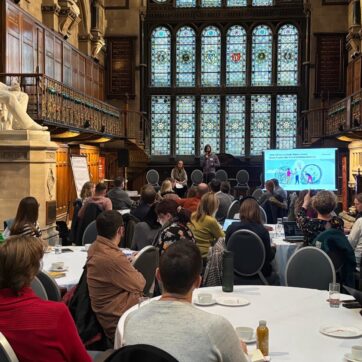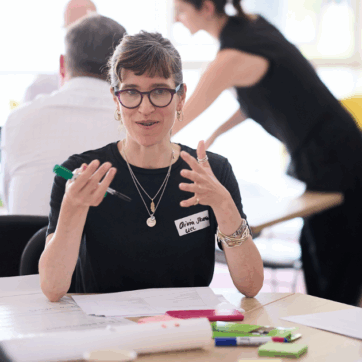Breaking into policy impact still presents a major challenge for arts and humanities researchers in the UK (see previous UPEN blog posts here and here for more). In light of the recent election and in anticipation of a changed Government agenda, we sit at a significant juncture to reflect on the dialogue between arts and humanities researchers and policymakers. We now have the perfect opportunity to place arts and humanities research at the foundation of policy to engender change in the landscape. So, what if we do what arts and humanities researchers do best and reframe the narrative? Rather than asking where the research or individual academic can add value to policy, what are policymakers saying about the value of arts and humanities contributions to the policy landscape, and what can we learn from these? In this blog, insights from the Knowledge Exchange Unit at UK Parliament (KEU) and Chief Scientific Advisor at Department for Culture, Media, and Sport (DCMS) reveal the value of arts and humanities research in policy, and that policymakers are actively looking for researchers to engage with them.
Christopher Smith, United Kingdom Research and Innovation (UKRI) Sector Champion for the Creative Industries and Executive Chair, Arts and Humanities, writes in his February 2024 blog that it is essential that the arts and humanities sustains motivation to address ‘the challenge of complexity and engender open constructive debate, in our own subjects, across science and across communities.’ Narrative and storytelling, the ability to change hearts and minds through vibrant and innovative creativity is the core of arts and humanities research. The capacity to catalyse discussion through creative approaches is hugely valuable, and in terms of policy, essential to translating information of varying perspectives.
Reflecting on this 2023 blog by UKRI, the KEU are considering how they as policymakers can encourage the diversity of researchers that engage with them.
Arts and Humanities researchers take note – policymakers want to hear from you!
The KEU specify that
The contributions of arts and humanities researchers help inform parliamentary scrutiny, and it could certainly be argued they are more important now than ever; how can MPs fully scrutinise policy and draft legislation regarding Artificial Intelligence without considering insights from philosophy, ethics, history, cultural studies, design and beyond?
Arts and humanities research offers policymakers unique and rounded considerations on the different impacts that legislation may have on the narratives of many lives by opening the door to debate and the search for truth. When Government considers highly complex, multi-disciplinary issues like Artificial Intelligence or climate change, a balanced articulation of all sides is invaluable to ensure equitable approaches.
Exploring the various applications that Arts and Humanities research can have across a range of social, cultural, and economic policy areas is key to understanding the value of the research and its potential impacts. For example, the Chief Scientific Advisor at DCMS, Professor Tom Crick, highlights the value of collaborating with academics in developing research that produces new insights and innovative approaches, helping to inform future policy and practice. The UKRI fellowship programme at DCMS (set up pre-election) is one of the ways that this Department are seeking to ensure their policymaking is ‘rigorous, robust and evidence-led’. Policy fellowships embed a dialogue of knowledge and talent between government, academia and research organisations. Through initiatives like these, Arts and Humanities researchers are well positioned to co-create and co-design research to support evidence-led policymaking, required to address the complex and multi-faceted issues affecting people’s lives.
Likewise, the KEU are keen to foster and build a community of researchers across disciplines, particularly those from arts and humanities specialisms. Building on their work with Thematic Research Leads, the KEU is looking to invest in its connections with the research community and encourage experts from arts and humanities disciplines to contribute their insights to Parliament. Dr Helen McCabe is the new Thematic Research Lead on Arts and Humanities and if you are interested in working with Helen, you can register via this online form. Once this form has closed, you can email the KEU directly.
In this timely moment there will be lots of opportunities to engage with Parliament. To keep up to date with the workstreams of newly formed select committees, make sure to sign up to the Knowledge Exchange Unit’s weekly round-up email. Resources such as the ‘how to’ guides, recordings of online training sessions, and experts who have engaged with Parliament are all available on the KEU webhub to view and share amongst colleagues.
In her round up of the 2023 UPEN annual conference, Professor Arlene Holmes Henderson ends with the note that ‘We will achieve much more if we work together.’ In order to realise the value of arts and humanities research in policy, as Henderson notes, work on both sides must be done. Funding bodies representative of the arts and humanities like the AHRC and British Academy are doing much to boost opportunities in the policy landscape for academics and the UPEN sub-committee for Arts and Humanities is supporting the dialogue between funding bodies, policymakers and HEIs. For the individual academic who is unsure if their work can add value to policy, the message from policymakers and funding bodies is clear: your insights are necessary in today’s complex landscape which requires multidisciplinary perspectives to improve people’s lives and create positive change.


